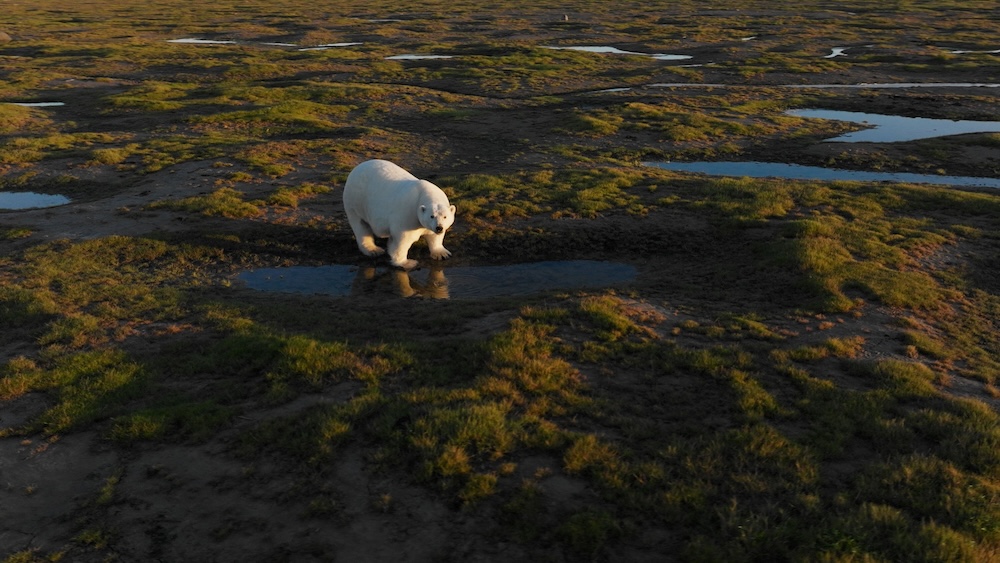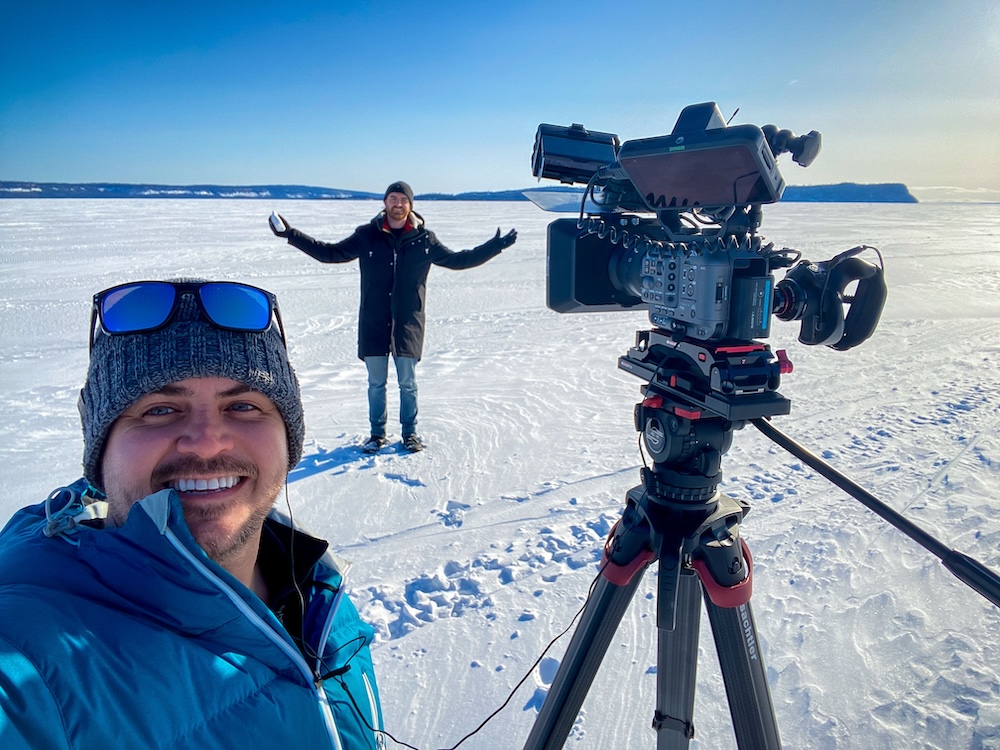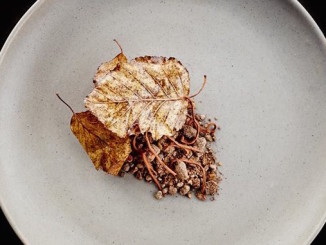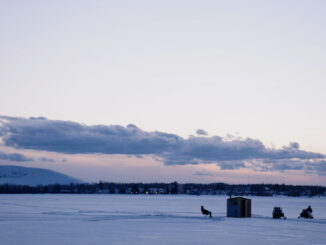As The Water Brothers gears up for its new season, host Alex Mifflin gives us a glimpse into what viewers can expect. With a focus on local stories with global relevance, the fifth season takes a unique approach by filming all six episodes in Ontario. From the shores of Hudson Bay in search of caribou, polar bears and beluga whales, to the depths of the Canadian Shield to find the world’s oldest water, Alex and his brother Tyler explore diverse topics like peatland conservation, plastic pollution and the dangers of PFAS “forever” chemicals. In this interview, Alex shares insights on how they select water stories, the challenges they face, and the importance of raising awareness while highlighting potential solutions.

Can you tell us more about the upcoming season of The Water Brothers? What are some of the key topics or locations explored in this season?
This season is a bit different from previous seasons because we filmed all six episodes here in Ontario. But even though we filmed everything locally, every episode subject has global relevance and importance. Some of the new episodes took us to the shores of Hudson and James Bay to film polar bears, caribou and beluga whales and highlight the importance of protecting peatlands as a nature-based solution to climate change, we went 2km beneath the Canadian Shield to learn about the world’s oldest water that was discovered in an Ontario mine and met with farmers across Ontario who are passionate about improving the health of soils. We also have episodes on plastic pollution in the Great Lakes, the importance of protecting wetlands and the dangers posed by a group of chemicals called PFAS (The Forever Chemicals) to environmental and human health.
How do you go about researching and selecting the water stories that you cover on the show? What criteria do you consider when choosing which issues to address?
A lot of time and effort goes into selecting the water stories we cover, but probably the biggest criteria is the scale of the challenge and threat that is posed to water. If a particular form of pollution is impacting water globally and not enough is being done to tackle it, then we will try to cover it in an episode. We also want viewers to learn something new from each episode and feel inspired to be part of the solution, so we try to avoid subjects that have already have a lot of media attention or might seem repetitive and also try to focus on topics that have promising and exciting solutions that already exist or are being developed that we can feature and share with viewers.
What has been the most challenging water story you have covered so far on the show? Can you tell us about the experience of filming that episode?
Probably the most challenging water story we’ve covered is our episode from season 3 about the Jordan River – The River Runs Dry. That took us to Israel, Jordan and Palestine to investigate the disappearance of the Jordan River and the role of water in being a cause, and potential solution, to conflict in the region. With the recent events in that part of the world, that episode is once again very relevant and it was very challenging to film, not only in gaining access to all the different locations and interviews, but also trying to tell a complicated water story involving very different perspectives and human conflicts that go back centuries with so much suffering connected to it, which is very difficult to do in a 25 minute episode. The decline of water quality and availability around the world can be a major root cause of conflict, but making that episode also showed us that water can also be an opportunity to find common ground and a key part of the process towards achieving peace.

You often collaborate with conservationists, scientists, and citizens on the show. How do these partnerships contribute to your exploration of water issues?
Our partnerships with scientists, conservationists, indigenous groups and citizens from local communities we visit in the show is really what makes it all possible. Without the support of local people and passionate scientists who have dedicated their careers to the subjects we cover is what allows us to make the episodes as good as they are and gain access to locations and interviews that we couldn’t do on our own. We are really fortunate to have met so many amazing people throughout our travels who inspire us everyday and we feel a responsibility to thank them for their time and support by making sure each episode is as good as it possibly can be and help bring more attention to their work.
How do you balance raising awareness about the severity of water challenges with highlighting potential solutions and actions that viewers can take?
We don’t want each episode to be too much doom and gloom and get audiences bogged down in the scale of the challenge at hand, so we try to make each episode as positive as it possibly can be. Typically, we will spend about 10-15 minutes setting up the problem and explaining why audiences should care and then the next 10-15 minutes focusing on solutions. We usually end up spending more time focusing on solutions because we want viewers to come away feeling inspired to take action and not too discouraged that nothing can be done.
Your show has been described as “eco-adventure documentary.” How do you balance telling a compelling story with conveying complex environmental information to your viewers?
It’s always a difficult balancing act with these complex subjects but that’s one of the reasons we decided to have it be a hosted show. We want viewers to feel like they are coming on the journey with us and going on an adventure to a part of the world they may never get to visit themselves. Even if an episode is taking you to the other side of the world far from where you live, we want audiences to understand how they’re connected to the whole planet through water and why protecting oceans and freshwater is so critical in every corner of the globe.
How have you seen attitudes towards water conservation and protection change over the course of filming The Water Brothers? Have you seen greater engagement or awareness among your audience?
This has been one of the most encouraging aspects of doing this series for five seasons and over 10+ years now. The general public is much more aware and knowledgeable about global environmental issues than they typically were when we first began this journey. I believe that audiences are even more eager to watch this kind of content now because they generally know how serious issues like climate change and water pollution are and want to do more about it and we hope that this series can play a small role in inspiring even more people to become more aware and involved in solving them.
How does being based in Canada inform or influence the stories you cover on the show? Are there unique water challenges in Canada that you believe deserve more attention?
Being Canadian definitely shapes the stories we cover because we’ve always done one or two episodes a season on Canadian/North American focused stories and now with season 5 we shot the whole season locally. One of the things we try to address in the show and in our public speaking engagements is dispelling this myth of abundance we have in this country when it comes to water. In other words, because Canada has so much freshwater, it contributes to this idea that we don’t have to worry about water shortages and droughts like most other countries do and that is simply not true. Canadians are some of the biggest water users per capita in the world for this reason and we are a very wasteful society in many other ways too so we need to change this myth of abundance because most Canadians live on a very narrow strip of land close to the US border so we all use, share and pollute a small percentage of our overall freshwater resources and most of our water is very far from where we live. Also, because we are a cold country some people assume that we are immune to the worst affects of climate change but that is also another myth we must dispel. Canadian aquatic ecosystems and wildlife rely on that cold weather and ice cover to be healthy and as our lakes and rivers warm this is already leading to more toxic algae blooms and we are seeing more droughts in places like BC too. Canada is just as vulnerable as any other country to water challenges and just because we have so much water will not protect us as much as some people might assume.
Your show has been praised as educational and informative. Can you talk about the importance of using media like TV and online platforms to share information and raise awareness about water challenges?
Our production company SK Films has always been dedicated to using film and tv to educate and inspire audiences to care about our natural world. A lot of the work we do at SK is making IMAX films that play at science centers, museums and aquariums around the world and SK is celebrating its 25th anniversary this year so we’ve understood for a long time the very powerful role that films and media can play in inspiring the public, and especially youth, to care about the environment, science and conservation. The Water Brothers is another way we continue this mission with a tv series as opposed to our IMAX films, but there is nothing quite like speaking to a group of young students after a screening and hearing their amazing questions and seeing how inspired they are by what they’ve just seen. We’ve seen first hand how film can be used to help make the world a better place and we are very proud of what SK Films has been able to achieve so far and can’t wait to celebrate another 25 years of doing this work!
Finally, what message would you like to convey to viewers who are inspired by The Water Brothers to take action in their own communities to protect and conserve water resources?
We would just want to share that while the situation with the health of water resources around the world right now may seem daunting and depressing to think about, there are still lots of reasons to be hopeful and there is so much that can be done to help move humanity in the right direction. All across this country, there are countless lakes, rivers, wetlands and ecosystems under threat so we would recommend learning more about your watershed and where your water comes from and the major issues affecting your watershed. Perhaps you can write to your city councillor, MPP or MP about a particular issue and let them know you want more action to address that problem. Vote for politicians that make the environment a priority, support NGO’s that align with your values even if it’s just donating your time, support local farmers who are growing their food using more sustainable and regenerative practices, reduce single use plastic in your home and at your workplace or school and get out in nature, and on the water, whenever possible!
***
Through their eco-adventure documentary, The Water Brothers has captivated audiences and raised awareness about the critical importance of water conservation and protection. As the show enters its new season, Alex and Tyler Mifflin remain committed to telling compelling stories that not only educate viewers but also inspire them to take action. From dispelling myths about Canadian water abundance to showcasing the role of media in raising awareness, The Water Brothers continues to make a significant impact in the fight for a healthy and sustainable future for our water resources. Their message to viewers is one of hope and empowerment – there is still time to make a difference. By getting involved in their own communities, supporting local initiatives, and making conscious choices, each individual has the power to be part of the solution and protect our precious water resources for generations to come.
Watch The Water Brothers on TVO and on The Water Brothers website.




